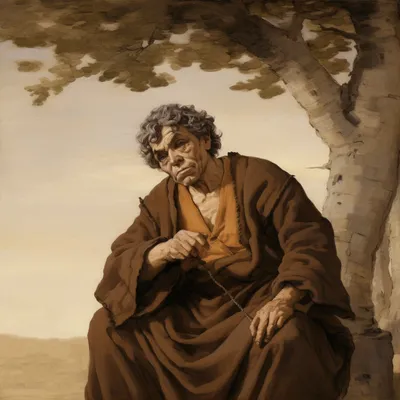Aesop
Aesop was a Greek fabulist and storyteller credited with a number of fables now collectively known as Aesop's Fables. Although his existence remains unclear and no writings by him survive, numerous tales credited to him were gathered across the centuries and in many languages in a storytelling tradition that continues to this day. Many of the tales associated with him are characterized by anthropomorphic animal characters. Each fable usually revolves around a particular moral or message, and the animals in the stories are used to illustrate these lessons.
Scattered details of Aesop's life can be found in ancient sources, including Aristotle, Herodotus, and Plutarch. The earliest Greek sources, including Aristotle, indicate that Aesop was born around 620 BCE in Greece. By Aristotle and Herodotus we are told that Aesop was a slave in Samos and that he must eventually have been freed, since he argued as an advocate for a wealthy Samian; and that he met his end in the city of Delphi.
The fables, which include timeless classics such as "The Tortoise and the Hare," "The Ant and the Grasshopper," and "The Boy Who Cried Wolf," have had a significant impact on literature and culture throughout history. Aesop's Fables have been translated into numerous languages and have served as a source of inspiration for storytellers, writers, and artists around the world.
Read more on Wikipedia
